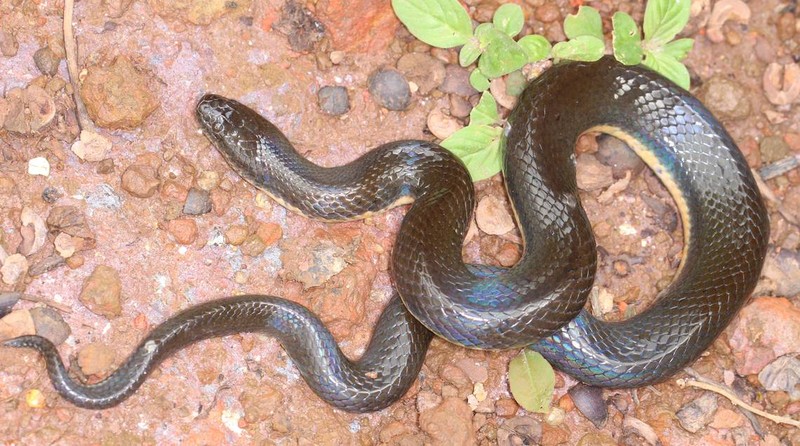8 Easy and Effective Ways to Keep Snakes Away From Your Yard
Snakes may play an important role in the ecosystem, but most homeowners would prefer they stay far from their property — and for good reason. Some snakes are venomous, while others simply frighten people or pets. Thankfully, there are proven and natural ways to deter them without using harmful chemicals or risking your safety.

1. Maintain a Tidy and Low-Cover Landscape
Why it works:
Snakes are shy and secretive by nature. They look for quiet, covered places to hide, rest, and hunt. Overgrown grass, piles of leaves, rocks, and wood stacks give them ideal hiding spots.
What to do:
- Mow your lawn regularly — snakes dislike short grass.
- Remove leaf litter, brush piles, and firewood stacks — especially near the home.
- Trim shrubs and bushes so they’re not touching the ground.
- Store wood at least 1 foot off the ground.
- Avoid dense ground cover like ivy or thick mulch.
2. Seal Entry Points and Gaps
Why it works:
Snakes can enter through openings as small as a quarter of an inch. They often follow their prey (mice, frogs, insects) indoors or into crawlspaces.
What to do:
- Inspect and seal cracks in your home’s foundation, garage doors, vents, and windows.
- Use weather stripping on doors.
- Cover vents and drains with mesh screens.
- Fill in holes around the yard — especially rodent burrows.
3. Grow Snake-Repellent Plants
Why it works:
Some plants naturally deter snakes due to their strong scent, spiky texture, or natural oils that irritate a snake’s sensitive tongue and skin.
Suggested plants:
- Marigolds – repel snakes and also keep away pests.
- Lemongrass – contains citronella, a scent snakes dislike.
- Wormwood – has a strong odor snakes avoid.
- Mother-in-law’s tongue (Snake Plant) – its sharp leaves may discourage slithering nearby.
- Onions and garlic – strong-smelling and unpleasant to snakes when planted or crushed.
4. Eliminate Rodents and Insects
Why it works:
Snakes come where the food is. If your yard has mice, rats, frogs, or large insects, snakes will be attracted.
What to do:
- Remove food scraps or pet food left outside.
- Keep trash bins sealed.
- Don’t feed birds on the ground — seeds attract rodents.
- Use traps or natural repellents for rodents and insects.
5. Install a Snake-Proof Fence
Why it works:
Physical barriers can be highly effective when properly built and maintained.
How to build one:
- Use hardware cloth or mesh with holes no larger than ¼ inch.
- The fence should be at least 3 feet high and buried 6 inches underground.
- Angle the fence outward at 30 degrees.
- Gate areas should be tightly sealed — snakes can squeeze under or through gaps.
6. Use Natural and Homemade Snake Repellents
Why it works:
Certain natural substances overwhelm or irritate a snake’s Jacobson’s organ (a sensory organ in the mouth).
What to use:
- Sulfur powder – unpleasant smell and feel.
- Cinnamon & clove oil mixture – mix with water and spray along perimeters.
- White vinegar – pour around pools, ponds, and walkways.
- Garlic spray – blend garlic with water and spray bushes and fences.
Note: Always reapply natural repellents after rain.
7. Remove or Manage Water Sources
Why it works:
Snakes need water to survive and are drawn to wet environments that support their prey like frogs and insects.
What to do:
- Fix leaky hoses or outdoor faucets.
- Empty kiddie pools or birdbaths overnight.
- Cover ponds and fountains with mesh at night if needed.
- Use gravel or sand around water features — snakes dislike crawling over sharp or dry textures.
8. Call a Wildlife or Pest Control Professional
Why it works:
If snake sightings become frequent, or if you suspect venomous species, don’t take risks.
When to call:
- If you find a nest or multiple snakes.
- If you can’t identify the species.
- If pets or children are at risk.
- For long-term inspection and preventive solutions.
Bonus Tips
- Use motion-activated sprinklers to scare snakes away.
- Place fake predators like owl decoys or snake traps in strategic areas.
- Install gravel barriers or crushed stone pathways around garden beds — snakes dislike rough, dry surfaces.
Snakes are not evil — they play a key role in nature — but you don’t want them setting up camp in your backyard. By combining several of these strategies, you can make your yard less appealing to snakes while also creating a cleaner, safer, and more enjoyable outdoor space.